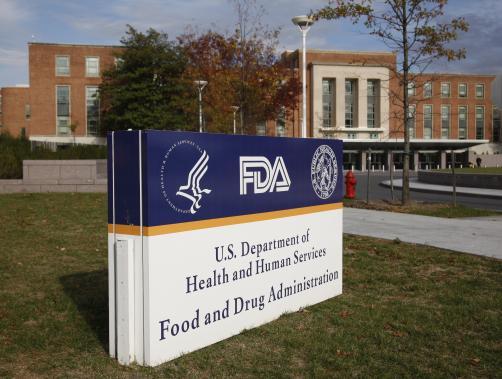FDA reviewers back Pfizer/BioNTech COVID-19 vaccine ahead of panel

Reviewers from the FDA have given their blessing to the Pfizer/BioNTech COVID-19 vaccine ahead of a key meeting tomorrow – but the regulator noted that there are still uncertainties about whether the shot can stop the disease from spreading.
The gist of a briefing document published from FDA reviewers ahead of an expert advisory board meeting is that the vaccine is good to go.
But there are still unanswered questions that can only be addressed once the shot is administered to the wider public.
Thursday's vote of the Vaccines and Related Biological Products Advisory Committee is non-binding – but the FDA seldom takes a different viewpoint from its experts when it makes a final regulatory decision.
Pfizer and BioNTech are asking for an Emergency Use Authorization of their vaccine based on phase 3 data, which can be converted into a full licence at a later date once further trial information is published.
Phase 3 trials are designed to test whether vaccines are safe and effective and in this regard FDA reviewers said in the document that the Pfizer/BioNTech vaccine is a success, effective in around 95% of cases and with “favourable safety profile”.
The most common adverse reactions seen in a trial cohort of 38,000 patients were at injection sites (84.1%) followed by fatigue (62.9%) and headache (55.1%), and serious adverse reactions occurred in 0% to 4.6% of participants.
There were four cases of Bell’s palsy – a sudden muscle weakness – in the vaccine group and none in a placebo arm.
However the FDA noted there are currently insufficient data to make conclusions about the safety of the vaccine in subpopulations such as children less than 16 years of age, pregnant and lactating women, and those with compromised immune systems.
The biggest issue for the FDA staffers is one that will only be resolved with time – whether or not the shot can prevent people from infecting each other.
Reviewers said that “additional evaluations including data from clinical trials and from vaccine use post-authorisation will be needed to assess the effect of the vaccine in preventing virus shedding and transmission, in particular in individuals with asymptomatic infection".
Reviewers noted there was no evidence of “vaccine-enhanced disease” but whether the vaccine could lead to a more resistant strain of the virus emerging is also unclear.
The regulator will be keeping a watching brief on this as more study data emerges over the course of the pandemic.
This risk “needs to be evaluated further in ongoing clinical trials and in observational studies that could be conducted following authorisation and/or licensure,” reviewers said.
Hospitals in the UK have already begun immunising high-risk patients after the country’s regulator became the first in the world to approve the Pfizer/BioNTech vaccine last week.













